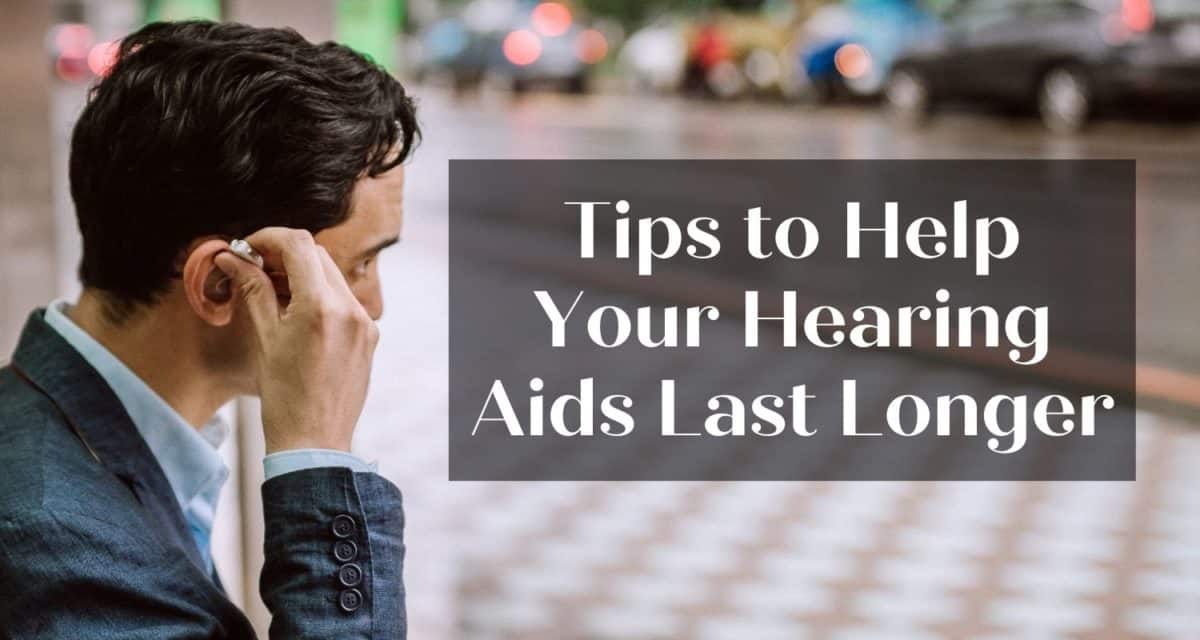- How to Know It Is Time to Upgrade Your Hearing Aids - April 8, 2024
- Hearing Aids 101: A Comprehensive Buyer’s Guide - March 4, 2024
- Navigating Communication Gaps in the Face of Hearing Loss - February 9, 2024
Millions of people rely on hearing aids to navigate daily life and communication. These electronic devices are a major investment in your health and wellness. Hearing aids make it easier to engage in conversations with loved ones, participate in your favorite activities, and have a great time in social settings. They are integral to the quality of life so it is important to maintain them as best as possible. Hearing aids are highly durable devices, typically lasting 5 to 7 years. The key to making them last and working optimally is practicing the best care, here are a few tips to help your hearing aids last longer:
- Clean hearing aids daily. Hearing aids are impacted by daily wear and tear. Earwax, dust, and other natural debris can build up in the ears which can then accumulate on your hearing aid. This can impact the hardware components that make the device – contributing to erosion, moisture damage, and other hardware issues. Cleaning your hearing aids regularly is a necessary practice and way to prevent this kind of damage. We recommend cleaning your device daily, a great time to do this is at night when you remove your device before sleeping. Your cleaning routine should include:
- Use a soft and dry cloth to thoroughly remove any dirt, earwax, or any other substance on your hearing aids.
- Use a hearing aid brush or pick to carefully remove any substance that has gathered on the microphone or battery door.
- Open up the compartment that holds the battery and thoroughly wipe it down. Leave this compartment open overnight to help keep your device dry.
- For behind-the-ear devices, detach hearing aid components (earpieces and small tubing) and wash these pieces with warm water once a week. Be sure to dry them overnight, ensuring they are completely dry before reattaching and wearing them.
Practicing this cleaning routine nightly can prevent damage and keep your hearing aids functioning well.
- Keep hearing aids dry. Moisture is a major hazard for hearing aids. Daily exposure to humidity, rain, sweat, water from swimming, etc. can contribute to moisture damage. Dampness can damage the electrical components of hearing aids by short-circuiting ions, causing various issues. Keep your hearing aids dry by:
- removing hearing aids before showering or swimming.
- not placing them in damp environments like the shower or bathroom.
- If your device gets wet, dry them immediately and remove the battery to also allow it to dry.
- Store your device in a room temperature space. A bedroom is a great option which also allows you to have easy access to them.
- Use a dehumidifier which is a useful hearing aid accessory that helps keep them dry. You can place hearing aids in a dehumidifier overnight to completely dry your device.
- Get hearing aids regularly serviced. Having your hearing aids professionally examined and cleaned is a helpful way to best maintain your device. This can help catch any issues that you may miss as well as provide a thorough cleaning. You can also request that the hearing aid specialist runs a service test that evaluates how well your device is meeting your hearing needs. We recommend getting your hearing aid serviced every six months, this regular check-up ensures that your device is working optimally.
- Self troubleshoots common fixes. If you notice any changes to your device, be sure to run common troubleshooting strategies right away rather than letting any issues persist. This includes:
- Inspect device: thoroughly evaluate your hearing aids and remove any substances that may have built up on your device.
- Increase volume: be sure your device is turned on and adjust the volume to make sure it is at a level that is comfortable for you.
- Check battery: check to see that your batteries are inserted properly and that the compartment door is completely shut.
- Check to tube: inspect the small tube that connects hearing aid components. Check for cracks or damage.
If these tips do not fix the issue you are experiencing, take your hearing aids in to be professionally serviced. Do not wait to do this which can further damage your device.
- Keep ears clean. Impacted earwax is a common ear-related issue that people experience. Accumulated earwax in the ear canal can damage hearing aids. Be sure to safely and regularly clean your ears to prevent earwax from affecting hearing aids.
Contact us today to learn more about best practices to maintain your hearing aids.

